Indigenous Governance Database
NNI and Harvard Project Research
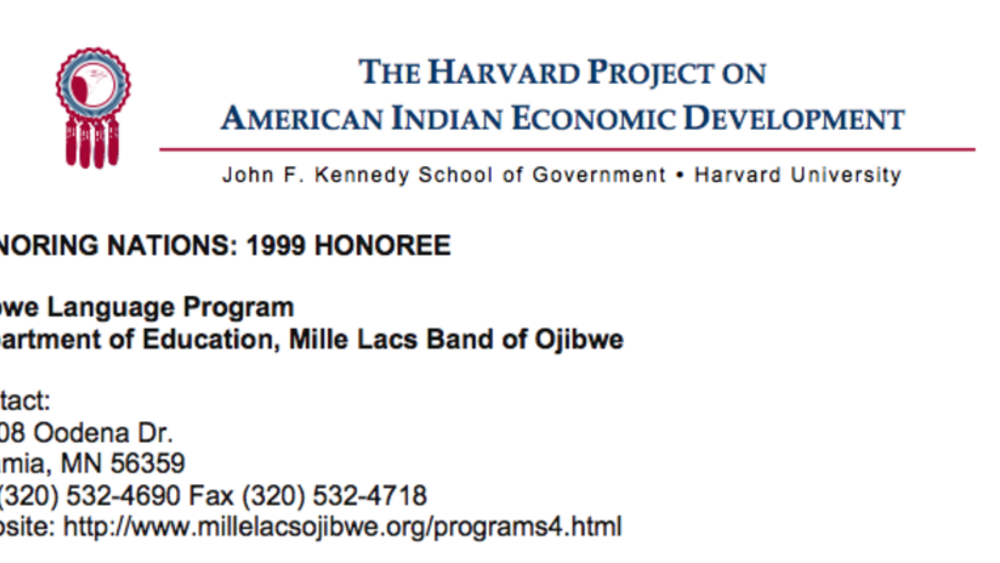
Mille Lacs Ojibwe Language Program
Created in 1995, this tribally funded program serves 350 students (from toddlers to teenagers) and uses elder-youth interaction, song books, and comic books to teach the Ojibwe language. In addition, the Program broadcasts language classes to local public schools in an effort to teach the Ojibwe…
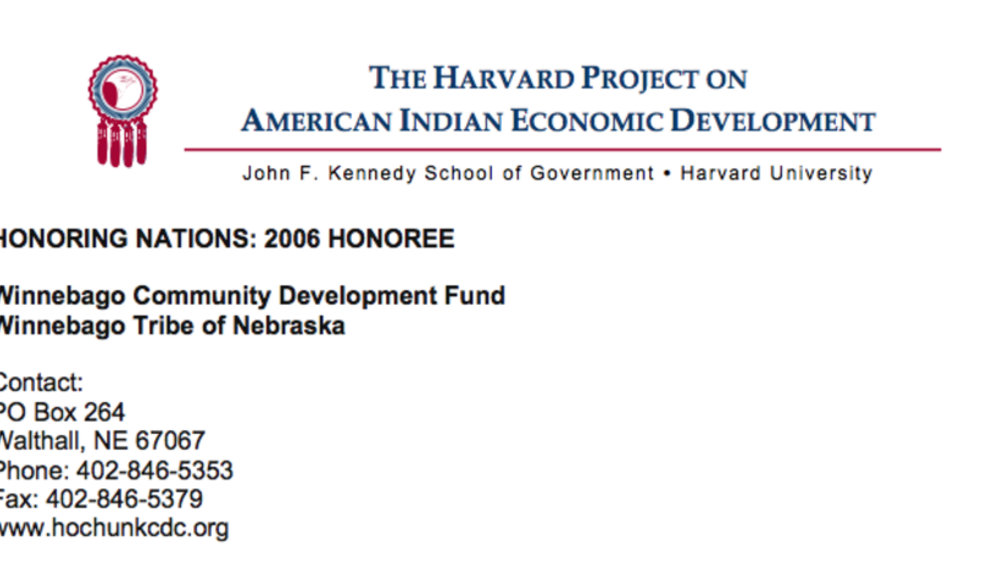
Winnebago Community Development Fund
Establishing a framework for community development based on the goals of the government and its citizens, the Winnebago CDC Fund builds toward long-term development by matching funds for grants, building community projects, supplementing community infrastructure, increasing educational…
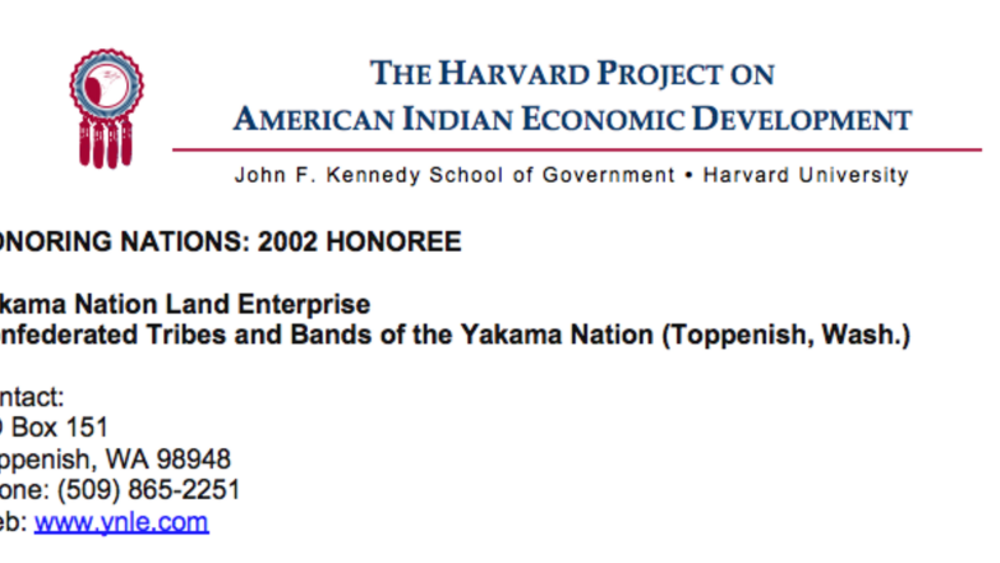
Yakama Nation Land Enterprise
In an effort to consolidate, regulate, and control Indian land holdings, the financially self-sustaining Yakama Nation Land Enterprise has successfully acquired more than 90% of all the fee lands within the Nation’s closed area — lands which were previously highly "checker-boarded." The Enterprise’…
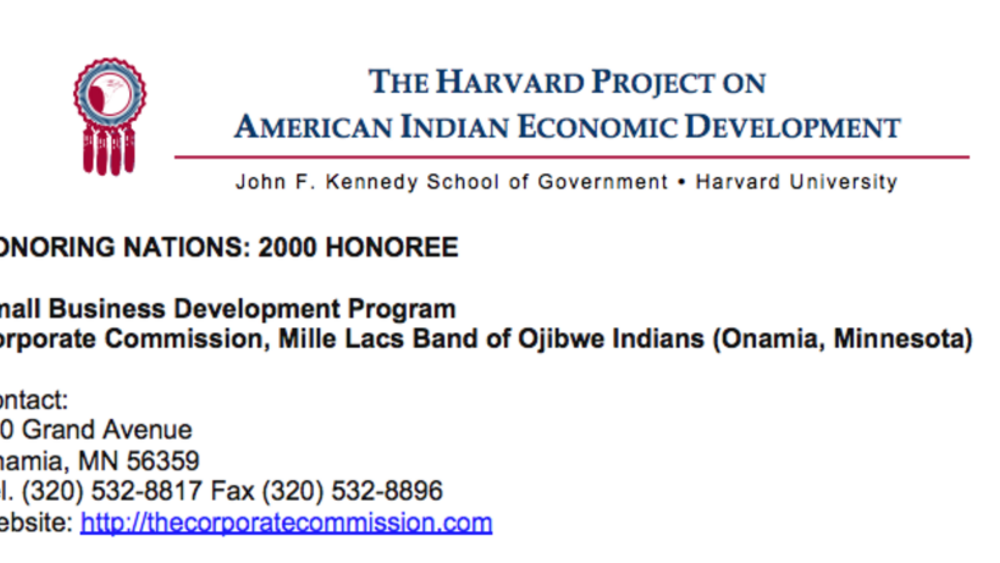
Mille Lacs' Small Business Development Program
The Small Business Development Program assists Band members in developing the private sector economy by providing low-interest loans up to $75,000 to businesses that are at least 60 percent owned and operated by Band members located on or near the Reservation. The Program offers both "micro" loans…
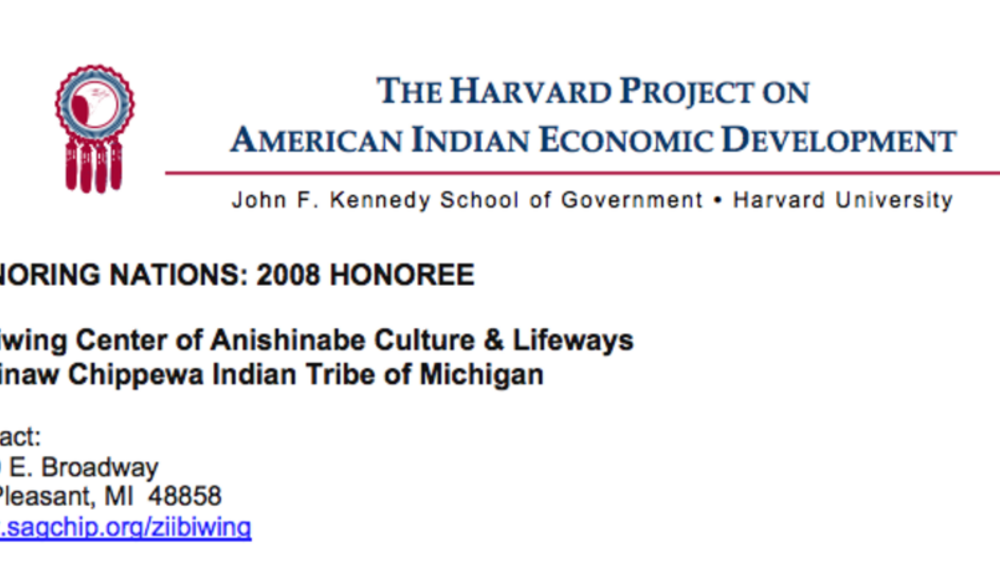
Ziibiwing Center of Anishinabe Culture and Lifeways
The Ziibiwing Center of Anishinabe Culture and Lifeways is the caretaker of cultural heritage for the Saginaw Chippewa. The Center educates the Tribe’s citizens and the general public through its permanent and rotating exhibits, research center, repatriation efforts, art market, workshops, and…

Water Quality Standards (Sandia)
Responding to the severe contamination of the Rio Grande River that threatens human health and ceremonial uses of the water, the Pueblo was awarded "treatment as state" status in 1990. Subsequently, the Pueblo developed and implemented US EPA approved water quality standards that give it control…
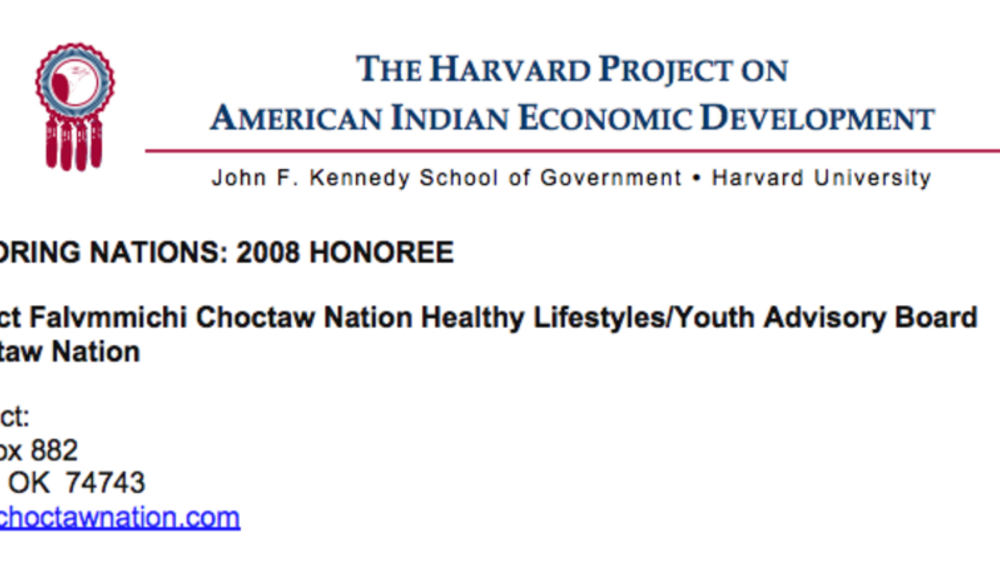
Project Falvmmichi (Choctaw Nation of Oklahoma)
"It is not cool to hit or be hit" is the straightforward motto of Project Falvmmichi, a school-based program of the Choctaw Nation designed to tackle the problem of domestic violence. The program teaches elementary school students positive ways to deal with anger and resolve conflicts. Today, more…
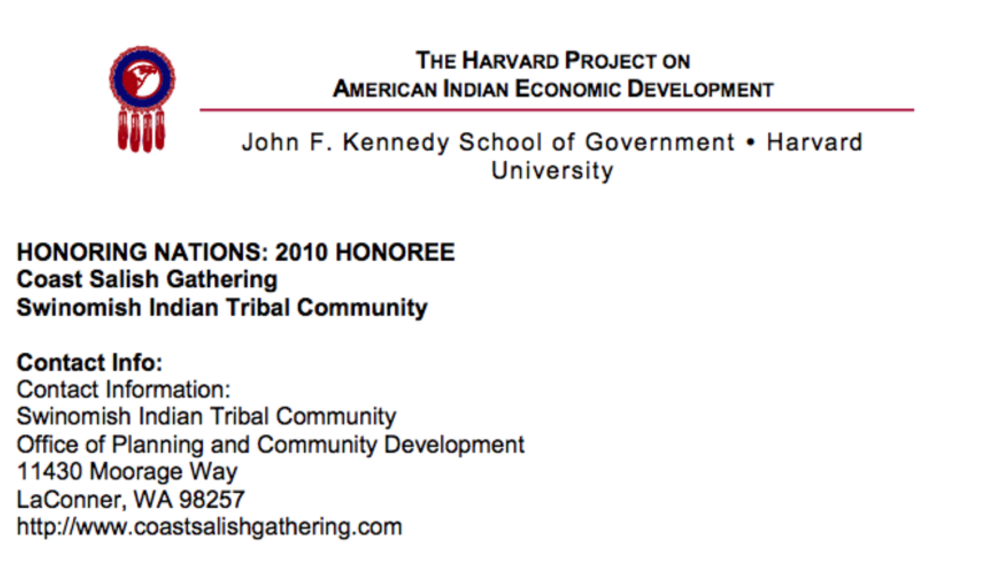
Coast Salish Gathering
Ecosystems in many parts of North America are under severe stress. Pollution, the overuse of natural resources, and habitat destruction threaten local flora and fauna. Conservation attempts often fall short because they target one species of site within an ecosystem. The Coast Salish Gathering…
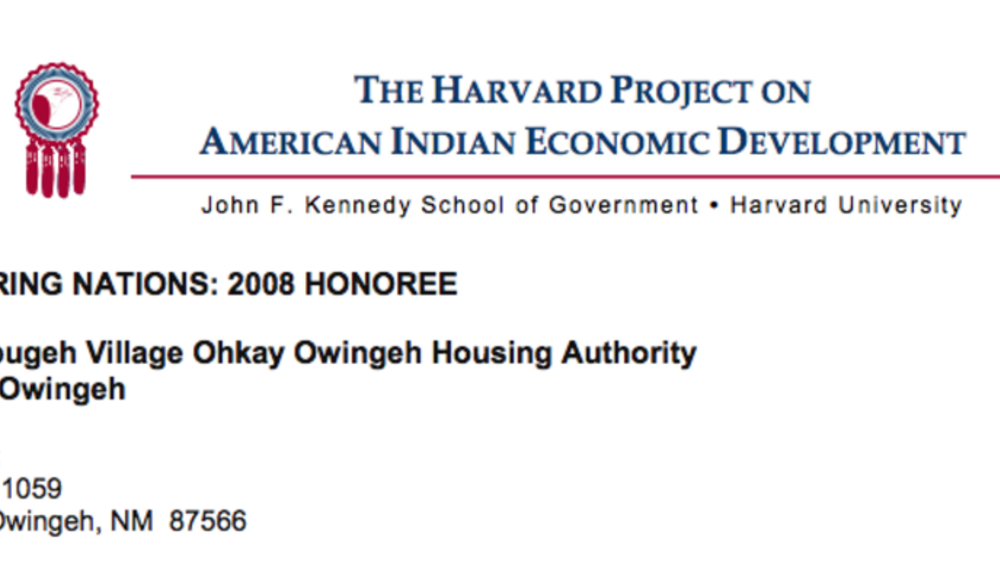
Tsigo bugeh Village (Ohkay Owingeh Pueblo)
Restoring communal living through Pueblo-style housing, the Tsigo bugeh Village offers "traditional living with a modern touch" for Ohkay Owingeh citizens. Designed to honor a sense of community and place, Tsigo bugeh addresses Ohkay Owingeh’s urgent housing demands with 40 units for single and…
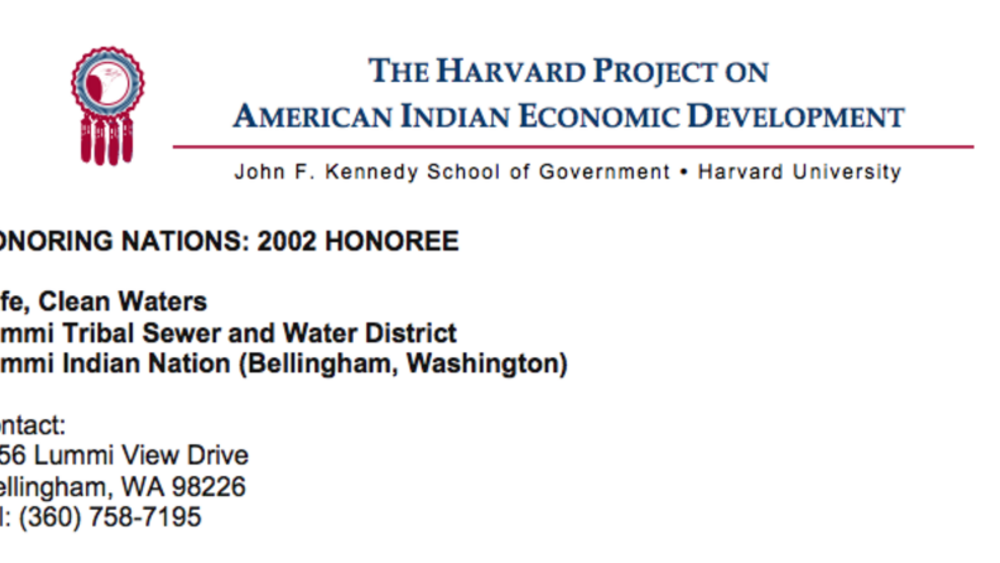
Lummi: Safe, Clean Waters
Governed by a five-member, independently elected board that includes two seats that are open to non-tribal fee land owners, the Lummi Tribal Sewer and Water District provides water, sanitary and sewer infrastructure, and service to 5,000 Indian and non-Indian residents living within the external…
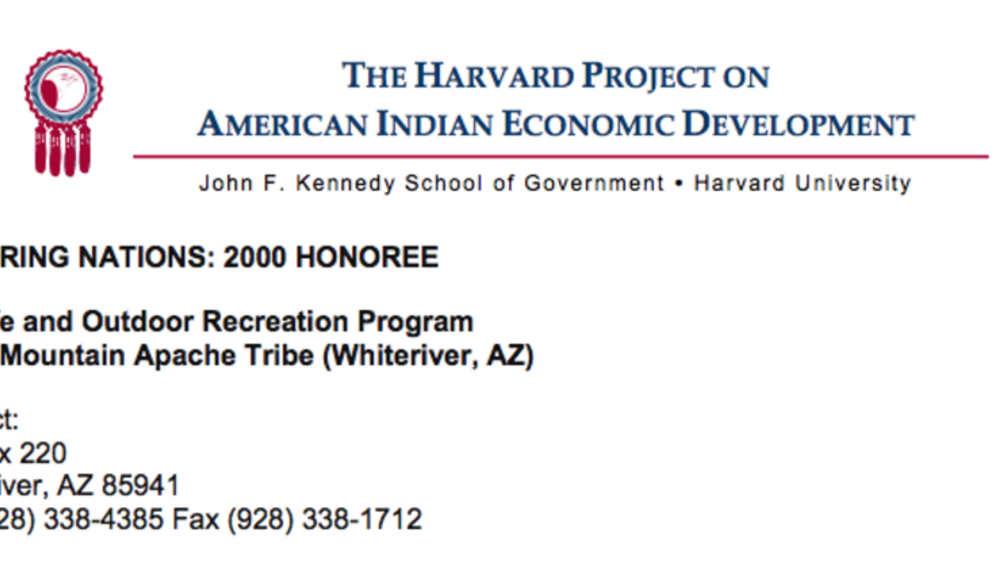
White Mountain Apache Wildlife and Recreation Program
The White Mountain Apache Wildlife and Recreation Program fulfills the dual role of performing all wildlife conservation and management and serving as a self-sustaining business enterprise based on the Tribe’s recreation/tourism industry. The program’s effective wildlife management techniques have…
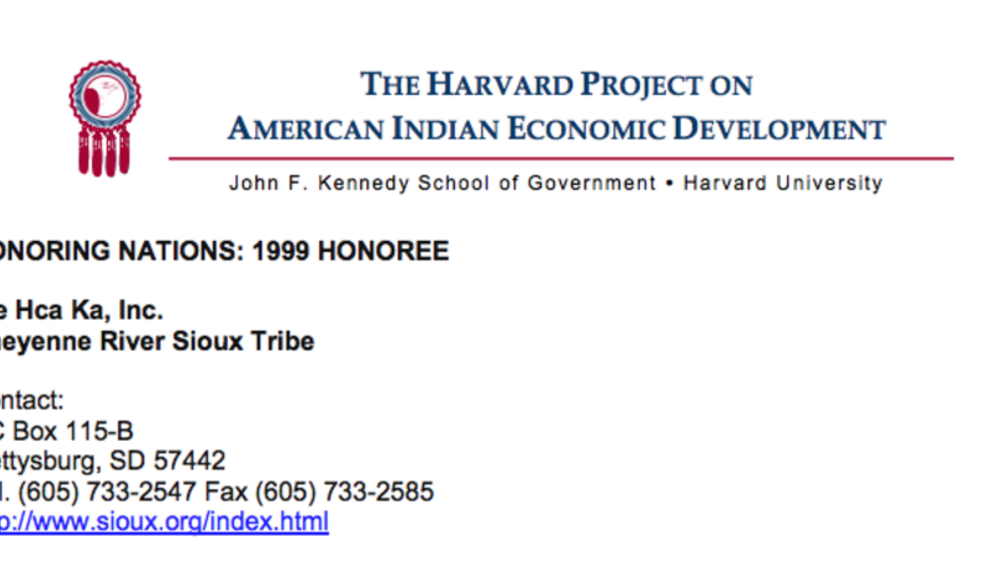
Pte Hca Ka, Inc. (Cheyenne River Sioux Tribe)
This tribally chartered corporation developed a culturally compatible management system for reestablishing buffalo as a focal point for socio-economic development, community cohesion, and self-determination. Pte Hca Ka, Inc. operates a mobile meat processing facility, and is currently seeking…
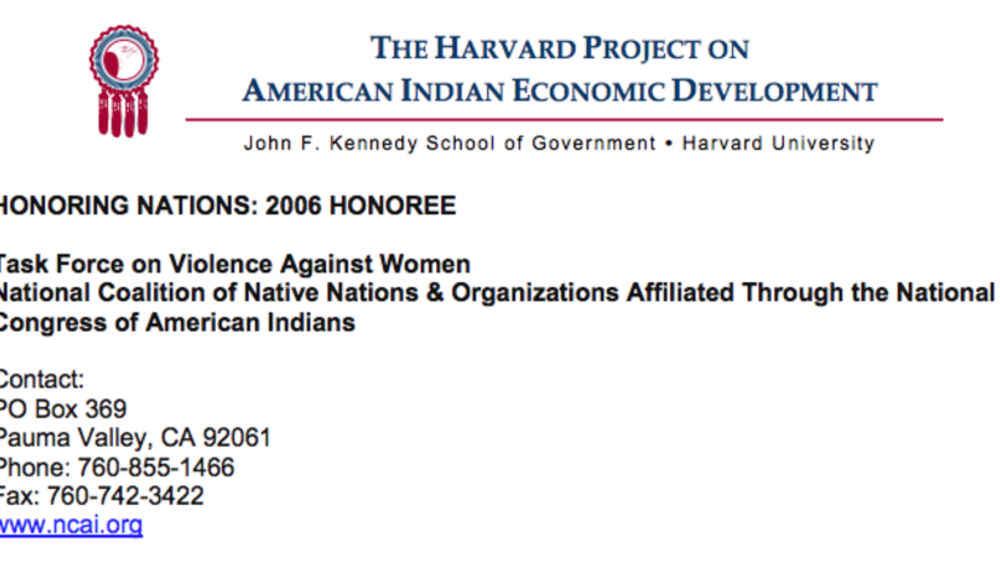
NCAI Task Force on Violence Against Women
Recognizing and acting upon the belief that safety for Native women rests at the heart of sovereignty, leadership from Native nations joined with grassroots coalitions and organizations to create an ongoing national movement educating Congress on the need for enhancing the safety of Native women.…
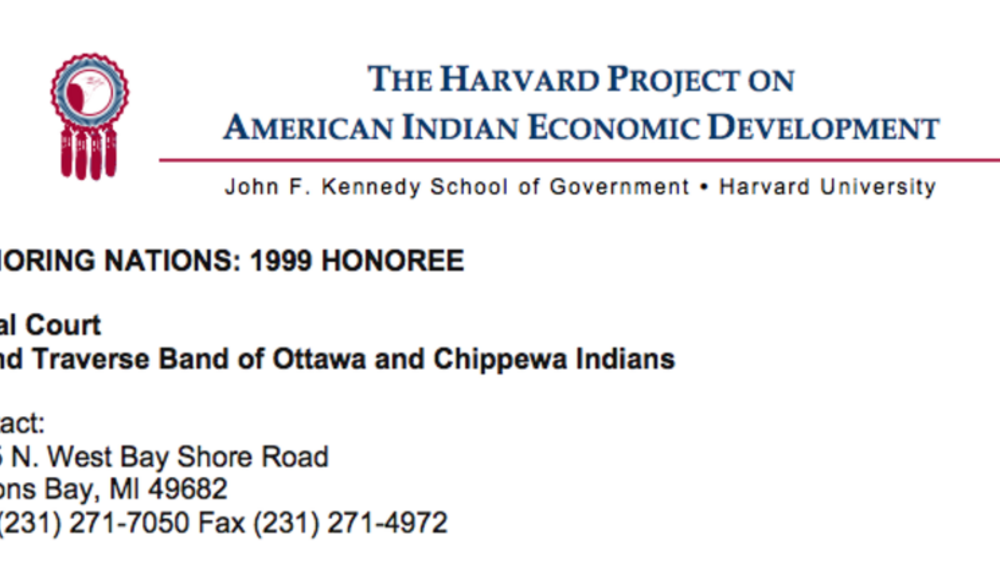
Grand Traverse Band Tribal Court
Constitutionally separated from the political influences of government, the Tribal Court hears more than 500 cases per year, and utilizes "peacemaking" to mediate in cases in which dispute resolution is preferred to an adversarial approach. The Court adjudicates on such issues as child abuse,…
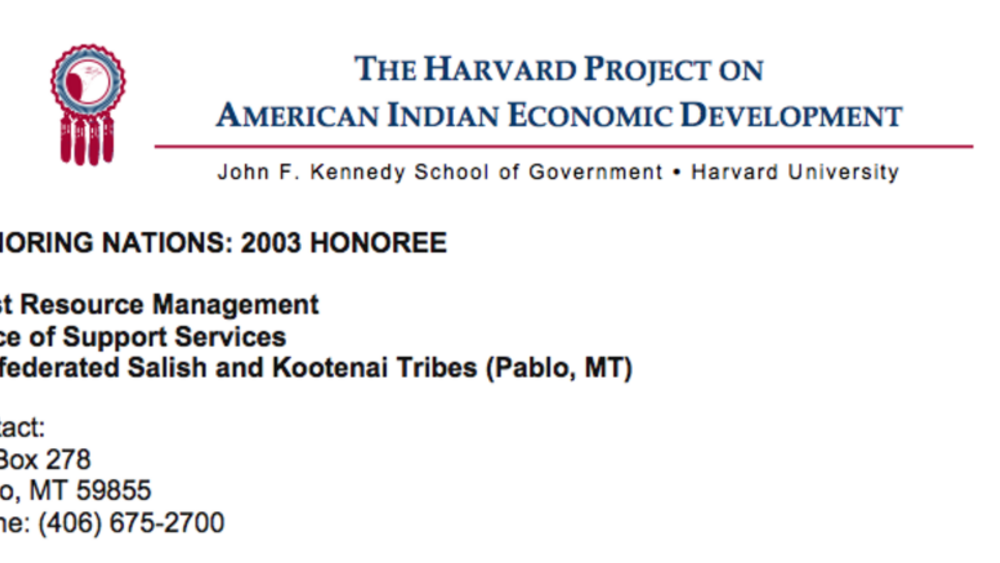
Trust Resource Management (Salish and Kootenai)
For more than three decades, the Confederated Salish and Kootenai Tribes (CSKT) have been building capable governing institutions and taking over management of resources and programs previously managed by outsiders. Recognizing that self-management both allows the tribal government to determine its…
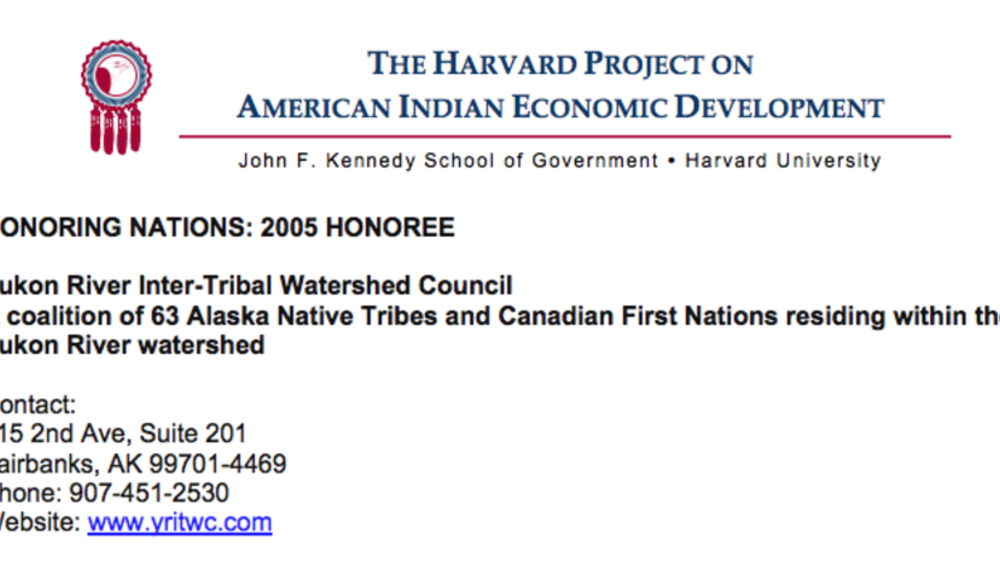
Yukon River Inter-Tribal Watershed Council
The Yukon River runs for 2,300 miles across the northwestern corner of North America. Many generations of Native people have drawn on its waters for food, drink, and other necessities. Recent development and changes in land use have affected the quality of Yukon River water. In 1997, chiefs and…
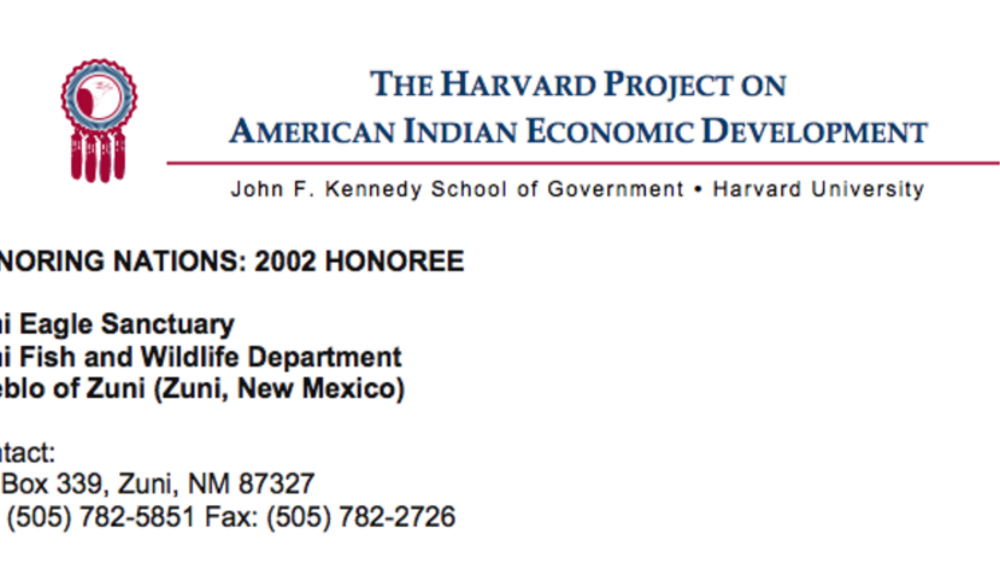
Zuni Eagle Sanctuary
Responding to ceremonial needs for eagle feathers, in 1999, the Pueblo opened the first-ever Native American owned and operated eagle sanctuary. The award-winning facility provides a source of molted eagle feathers for Zuni while at the same time reviving the ancient practice of eagle husbandry.…
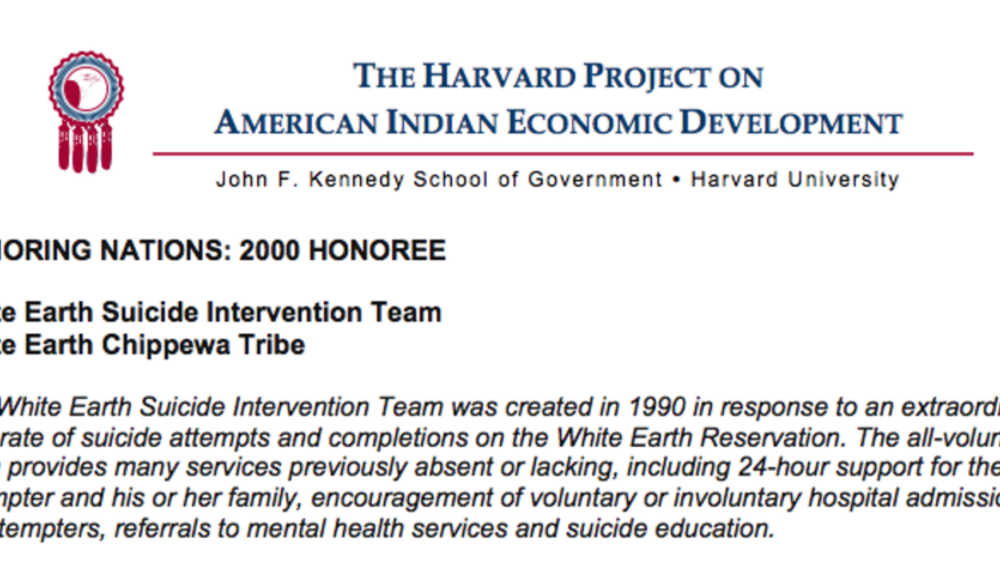
White Earth Suicide Intervention Team
The White Earth Suicide Intervention Team (WESIT) was created in 1990 in response to an extraordinarily high rate of suicide attempts and completions among tribal members living on the White Earth Reservation. With the Tribal Council’s official support, a group of volunteers came together following…
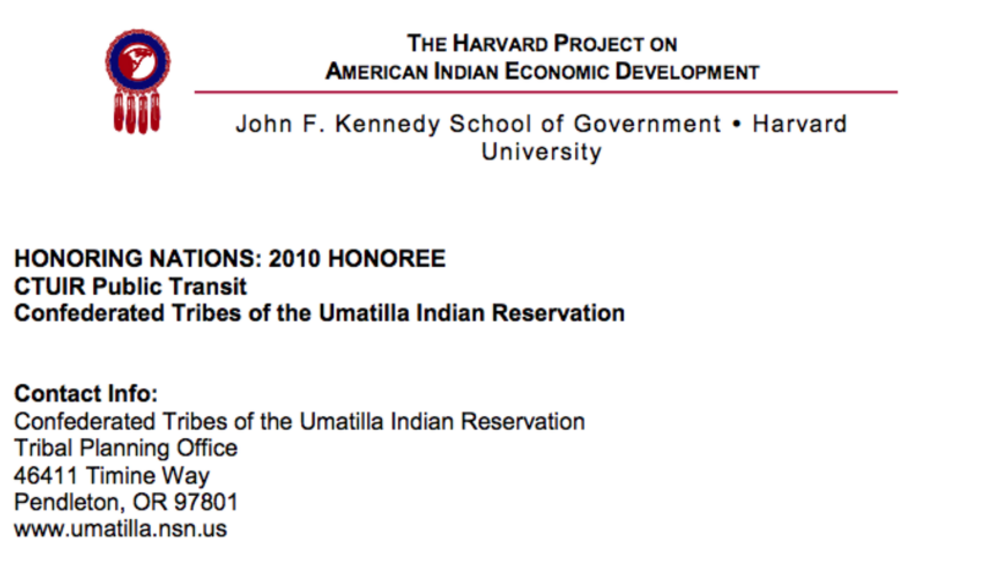
Umatilla Public Transit
In most rural areas of America, if you do not have a car it is difficult to get around. Without transportation, people must depend on friends or family for rides. It can be tough to plan medical appointments, maintain work schedules, shop for necessities, or sign up for classes. The Confederated…
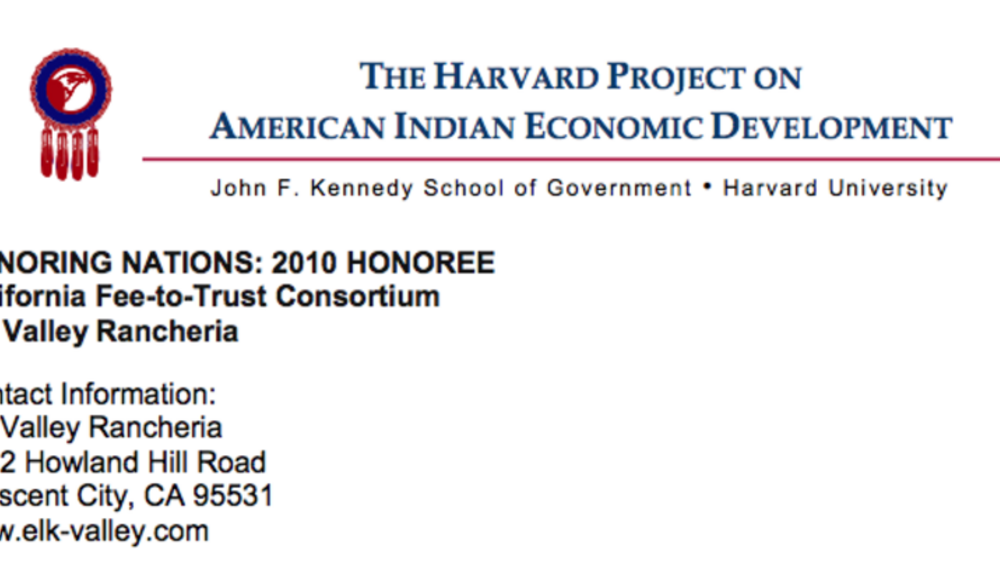
California Fee-to-Trust Consortium
The loss of traditional land is a source of longstanding trauma for Native nations. It has far reaching consequences that began at the time of dispossession and persist today. Many tribes struggle to regain territory in order to support the basic needs of their citizens – housing, economic…
Pagination
- First page
- …
- 2
- 3
- 4
- …
- Last page
